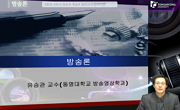This study aims to analyze the characteristics of tourist consumers who use tourist information and the characteristics between extroverted and introverted personality groups among the individual characteristics of tourist consumers in selecting touri...
http://chineseinput.net/에서 pinyin(병음)방식으로 중국어를 변환할 수 있습니다.
변환된 중국어를 복사하여 사용하시면 됩니다.
- 中文 을 입력하시려면 zhongwen을 입력하시고 space를누르시면됩니다.
- 北京 을 입력하시려면 beijing을 입력하시고 space를 누르시면 됩니다.
A STUDY ON THE EFFECT OF DIFFERENCES BETWEEN EXTROVERTED AND INTROVERTED PERSONALITY GROUPS ON TRAVEL INTENTION
한글로보기https://www.riss.kr/link?id=A107162009
- 저자
- 발행기관
- 학술지명
- 권호사항
-
발행연도
2020
-
작성언어
English
- 주제어
-
자료형태
학술저널
-
수록면
18-27(10쪽)
- 제공처
-
0
상세조회 -
0
다운로드
부가정보
다국어 초록 (Multilingual Abstract)
This study aims to analyze the characteristics of tourist consumers who use tourist information and the characteristics between extroverted and introverted personality groups among the individual characteristics of tourist consumers in selecting tourist destinations according to tourist preference types, and the impacts of voluntary information exploration and travel preference types on the travel patterns according to the outward and inward nature of tourist consumers . Therefore, the purpose of this study is to: First, to give theoretical consideration to the character type, information source, broadcasting media, online oral tradition, travel preference type, and travel intention of tourism consumers. Second, to identify the differences between tourism information search activities and tourism behaviors that appear in types of travel preferences, depending on the types of outgoing and introverted personality of tourism consumers. Third, based on the results of this research, to present tourism marketing strategies and implications to domestic and foreign tourism content developers. The analysis method was investigated by the judgment sampling method amongst all the non-probability extraction methods. The valid samples collected were tested for validity using a confirmatory factor analysis to ensure the intrinsic validity of the discriminant and convergent validity, and finally the casual relationship between the variables was analyzed. From the analysis, three of the eight hypotheses were adopted. The implications of this study are as follows. First, tourism development companies will have to identify the characteristics of information exploration of tourism consumers with introverted personalities and develop information provision methods that conform to their personality types. In order to generate travel-related curiosity and interest, the government should establish a differentiated marketing strategy that considers not only IT and grafting technologies such as mobile apps for extroverted tourism consumers, but also introverted tourism consumers. Second, it is necessary to develop more colorful and more receptive broadcasting media contents for introverted tourism consumers, such as producing broadcasting programs using cast members of various personality types, away from traveling broadcasting. Third, tourism development companies should develop a strategy to maximize the expansion effect of information exploration by developing information platforms with characteristics such as travel-related applications or small groups online and offline by effectively combining characteristics and characteristics of tourism consumers online. Finally, tourism developers need to identify the types of travel preferred by consumers of extroverted and introverted personality groups and expand a variety of product groups that mix the types of travel preferences based on extroverted-introverted personality. In addition, marketing strategies should be developed through segmentation, such as gender, age group, and companion type with different characteristics within the group.
목차 (Table of Contents)
- Abstract
- 1. Introduction
- 2. Theoretical Considerations
- 3. Research Design
- 4. Empirical Analysis
- Abstract
- 1. Introduction
- 2. Theoretical Considerations
- 3. Research Design
- 4. Empirical Analysis
- 5. Conclusions
- References
동일학술지(권/호) 다른 논문
-
- 한국엔터테인먼트산업학회
- Kim, Heung-Tae
- 2020
-
- 한국엔터테인먼트산업학회
- Young Keun Choi
- 2020
-
The basics of culture and art marketing that cultural artists should know
- 한국엔터테인먼트산업학회
- Ji-Hun, Lee
- 2020
-
THE EFFECTS OF SSP THERAPY ON DYSMENORRHEA AMONG WOMEN IN THEIR 20S
- 한국엔터테인먼트산업학회
- JEONG-JA KIM
- 2020





 DBpia
DBpia




